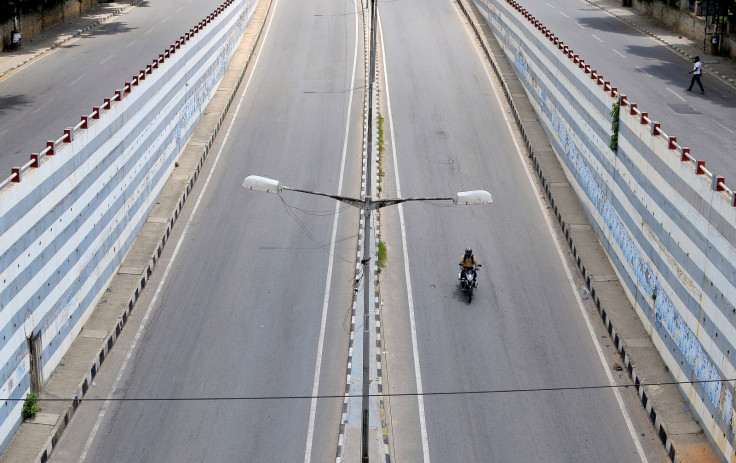Bengaluru to host India's longest steel flyover despite concrete opposition from activists
Environmentalists warn that 800 trees will be felled and heritage sites destroyed to make way for the flyover.

India could soon have its longest steel flyover in the southern Indian city of Bengaluru if the Karnataka government has its way through opposing parties. The administration has made it clear that it will press ahead with the project, despite opposition from environmentalists and activists.
The state government has argued that the 6.7km stretch will significantly ease traffic on the roads leading to the Kempegowda International Airport. Strongly backing the project and calling it an infrastructure necessity, Karnataka Chief Minister Siddharamaiah said on Tuesday (18 October), "The suggestions can still come but the project is finalised. Allegations on government that we are hurrying about this project are wrong. It is an old project, I announced it in 2014 budget."
The construction of the six-lane flyover will be overseen by the Karnataka administration's Bangalore Development Authorities (BDA), a state-backed agency which monitors infrastructure facilities in the city. According to the government contract, the flyover will be built by the Mumbai-based conglomerate Larsen & Toubro (L&T).
However, of the 8.5 million people living in Bengaluru, only 299 responded to the government's bid to go ahead with the flyover – a project aimed to be completed in two years, which some say is an ambitious deadline, at an estimated cost of Rs 19bn (£234m). The flyover will save commuters a few minutes while travelling to the airport, which is one of the busiest routes in the city, with more than 270,000 vehicles plying through an fro.
On 16 October, around 8,000 people, who local media labeled as "urban activists", demonstrated against the project and as the protests gathered momentum, residents formed a movement called the Citizens Against Steel Flyover. They were seen carrying placards with slogans such as : "We want trees, not steel", "Ugly steel is the problem, not the solution" and "Give us the train instead". The activists argue the steel flyover would not resolve the traffic congestion and instead urge the government to maintain roads in the city.
While environmentalists are concerned that more than 800 trees will be felled for the project, critics have pointed out that some heritage sites along the route of the flyover would also be destroyed. Although the government has promised to plant as many as 60,000 saplings to compensate for the damage to be caused to the environment, green activists were not convinced and said that Bengaluru, which was once known as the garden city of India due to its green cover, has lost more than 10,000 trees over the past years.
#Banglore citizens Created human chain in Bellari road from Basaveshwara circle to Hebbal Against proposed #SteelFlyover pic.twitter.com/Z7tiNYFf9h
— Manjunath Naglikar (@manjunathn2) 16 October 2016
Great to be part of this citizens' protest in Bengaluru today; the proposed steel flyover is a scam, and must be scrapped. https://t.co/YdkYnVhgO1
— Ramachandra Guha (@Ram_Guha) 16 October 2016
"Construction of steel flyover work can be completed faster than the conventional method of using cement concrete, as steel is monolithic and is available in standard size," the BDA, which divulged the specifics of the flyover only after public outcry, explained in its cabinet-ratified document. Nonetheless, Siddharamaiah later lashed out over the protesters and asked: "Will you fly to avoid the traffic congestions in the city?"
Human Chain against #SteelFlyover from #Chalukya circle; #SteelFlyoverBeda demand gains momentum. #Bengaluru let's raise our voices pic.twitter.com/oxAH2hy1dQ
— Sunita Iyer (@sunitaiyer) 16 October 2016
Justice Santosh Hegde in #HumanChain to say #SteelFlyoverBeda #Bengaluru pic.twitter.com/tIurMCyUpn
— Rajeev Chandrasekhar (@rajeev_mp) 16 October 2016
© Copyright IBTimes 2025. All rights reserved.






















